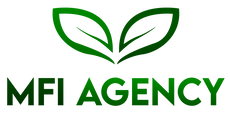
Top 3 Recommended Policies

In today's fast-paced market, businesses are constantly faced with the risk of product recalls. Whether due to safety concerns, labeling errors, or contamination issues, a recall can have devastating effects on a company's reputation and financial stability. This is particularly true in Texas, where the economy is booming, and the stakes are high. Understanding Texas product recall insurance is crucial for businesses of all sizes. This article will delve into the essentials of product recall insurance, its importance, how it works, and what Texas businesses need to know to protect themselves.
What is Product Recall Insurance?
Product recall insurance is a specialized type of coverage designed to help businesses manage the financial fallout from a product recall. This insurance can cover a variety of costs associated with recalling a product, including the expenses of notifying customers, retrieving the product from the market, and any legal fees that may arise from lawsuits or claims.
Types of Coverage
Product recall insurance typically includes several key components. These can vary by insurer, but common types of coverage include:
- Recall Expenses: Covers costs related to the recall process, such as logistics, communication, and disposal of the recalled product.
- Business Interruption: Provides compensation for lost income due to the disruption caused by the recall.
- Legal Defense Costs: Covers legal fees associated with defending against claims related to the recalled product.
Why is Product Recall Insurance Important?
The importance of product recall insurance cannot be overstated. A recall can lead to significant financial losses, reputational damage, and even bankruptcy for some businesses. Having the right insurance in place can help mitigate these risks and provide peace of mind.
Moreover, consumers are increasingly aware of product safety issues, and a single incident can lead to a loss of trust in a brand. Product recall insurance not only protects the business financially but also helps maintain customer confidence by ensuring that the company is prepared to handle any potential issues effectively.
In addition to financial protection, product recall insurance can also enhance a company's operational resilience. By having a structured plan in place, businesses can respond more swiftly to a recall situation, minimizing disruption and helping to restore normal operations faster. This proactive approach can also be a valuable asset during negotiations with retailers and distributors, as it demonstrates a commitment to safety and responsibility.
Furthermore, the landscape of product recalls is evolving, with increasing regulatory scrutiny and consumer expectations. Companies that invest in product recall insurance are not only safeguarding their financial future but also positioning themselves as leaders in corporate responsibility. This can lead to a competitive advantage, as consumers are more likely to support brands that prioritize their safety and well-being. By being prepared for the unexpected, businesses can navigate the complexities of product recalls with greater confidence and agility.

Understanding the Risks in Texas
Texas is home to a diverse range of industries, from food production to technology. Each sector faces unique risks when it comes to product recalls. Understanding these risks is essential for businesses operating in the Lone Star State.
Industry-Specific Risks
Different industries have varying levels of risk associated with product recalls. For instance, the food and beverage industry is particularly susceptible to recalls due to contamination or mislabeling. In contrast, the technology sector may face recalls due to software issues or safety concerns related to hardware.
Businesses in Texas must stay informed about the specific risks associated with their industry and take proactive measures to mitigate these risks. This includes implementing quality control measures, conducting regular audits, and investing in product recall insurance tailored to their needs. Furthermore, companies should consider establishing a crisis management plan that outlines the steps to take in the event of a recall, including communication strategies to inform consumers and stakeholders promptly. This preparedness not only helps in minimizing damage but also builds trust with customers who appreciate transparency during such incidents.
Legal Environment in Texas
The legal landscape in Texas can also impact the likelihood and consequences of a product recall. Texas has specific laws and regulations governing product safety, consumer protection, and liability. Understanding these laws is crucial for businesses to navigate potential legal challenges effectively.
Additionally, Texas has a reputation for being business-friendly, but this does not exempt companies from facing lawsuits related to product recalls. Having robust insurance coverage can provide a safety net in the event of legal action. Moreover, businesses should be aware of the potential for class-action lawsuits, which can arise if a recall affects a large number of consumers. Engaging with legal experts who specialize in
product liability can help companies stay ahead of potential legal pitfalls and ensure compliance with all relevant regulations. This proactive approach not only safeguards the business but also reinforces its commitment to consumer safety and corporate responsibility.
How Product Recall Insurance Works
Understanding how product recall insurance works is essential for businesses considering this coverage. The process typically involves several key steps, from policy acquisition to claims handling.
Acquiring Coverage
The first step in obtaining product recall insurance is to assess the specific needs of the business. This includes evaluating the types of products offered, the potential risks associated with those products, and the financial implications of a recall.
Once the needs are assessed, businesses can approach insurance providers to obtain quotes and compare coverage options. It is crucial to read the policy terms carefully to understand what is included and any exclusions that may apply. Additionally, businesses should consider the reputation and financial stability of the insurance provider, as these factors can significantly impact the reliability of the coverage when it is needed most. Engaging with brokers who specialize in product recall insurance can also provide valuable insights and help tailor a policy that best fits the unique challenges faced by the business.
Filing a Claim
In the event of a product recall, businesses must act quickly to file a claim with their insurance provider. This typically involves notifying the insurer of the recall, providing documentation of the incident, and detailing the associated costs.
The insurer will then review the claim and determine the coverage available. It is essential for businesses to keep detailed records of all expenses incurred during the recall process, as this documentation will be vital for a successful claim. Furthermore, businesses should be prepared to demonstrate their proactive measures taken to mitigate risks prior to the recall, as this can influence the insurer's assessment of the claim. Engaging legal counsel during this process can also be beneficial, as they can help navigate the complexities of liability and compliance with regulatory requirements, ensuring that all aspects of the recall are handled appropriately and efficiently.
Cost of Product Recall Insurance
The cost of product recall insurance can vary significantly based on several factors, including the size of the business, the type of products offered, and the level of coverage needed. Understanding these factors can help businesses budget effectively for this essential coverage. It's important to recognize that the implications of a product recall can be far-reaching, affecting not only the immediate financial health of a company but also its long-term viability and consumer trust.
Factors Influencing Premiums
Several factors can influence the premiums for product recall insurance:
- Industry Type: Different industries have varying levels of risk, which can affect the cost of coverage. For instance, food and beverage industries often face stricter regulations and higher scrutiny, leading to increased premiums compared to less regulated sectors.
- Product Type: The nature of the products being sold can also impact premiums. For example, consumables may have higher premiums due to the potential for health risks. Additionally, products that are complex or have multiple components may also incur higher costs due to the increased likelihood of a recall.
- Claims History: A business with a history of product recalls may face higher premiums compared to one with a clean record. Insurers often assess past claims to gauge risk, meaning that a single significant recall can influence future insurance costs for years to come.
Budgeting for Insurance
When budgeting for product recall insurance, businesses should consider the potential costs associated with a recall, including lost revenue, legal fees, and damage to reputation. While insurance premiums may seem like an added expense, the financial protection it offers can be invaluable in the event of a recall. Furthermore, investing in comprehensive training and quality control measures can reduce the likelihood of a recall occurring, thereby potentially lowering insurance costs over time.
Additionally, businesses should also factor in the potential impact on customer loyalty and brand reputation. A product recall can lead to a significant loss of consumer trust, which may take years to rebuild. By proactively managing risks and maintaining transparent communication with customers during a recall, companies can mitigate some of the reputational damage. This approach not only helps in maintaining customer relationships but can also positively influence future insurance premiums, as insurers may view the business as lower risk due to its commitment to quality and customer care.
Choosing the Right Insurance Provider
Choosing the right insurance provider is a critical step in securing product recall insurance. Not all insurers offer the same level of coverage or expertise, so businesses should conduct thorough research before making a decision. The implications of a product recall can be severe, impacting not only financial stability but also brand reputation. Therefore, selecting a provider that understands the nuances of your specific market is essential for comprehensive protection.
Evaluating Insurance Providers
When evaluating potential insurance providers, consider the following factors:
- Experience: Look for insurers with experience in providing product recall insurance, particularly in your industry. An insurer familiar with the unique risks and regulatory requirements of your sector can offer tailored solutions that better meet your needs.
- Claims Process: Investigate the claims process of each provider. A straightforward and efficient claims process can save time and stress during a recall. Furthermore, understanding the average turnaround time for claims can help you gauge how quickly you can expect support in a crisis.
- Customer Reviews: Reading reviews and testimonials from other businesses can provide insights into the insurer's reputation and reliability. Pay attention to feedback regarding customer service and responsiveness, as these elements can significantly influence your experience during a recall.
Consulting with Experts
Consulting with insurance brokers or industry experts can also be beneficial in selecting the right provider. These professionals can offer valuable insights and help businesses navigate the complexities of product recall insurance. They often have access to a broader range of options and can negotiate better terms based on your specific needs and risk profile. Additionally, they can assist in understanding the fine print of policies, ensuring that you are fully aware of what is covered and what is not.
Furthermore, experts can help you assess your business's unique risk factors and recommend appropriate coverage levels. This tailored approach not only ensures that you are adequately protected but also helps in identifying potential gaps in your existing insurance portfolio. Engaging with professionals who specialize in product recalls can also provide you with the latest industry trends and best practices, equipping you with the knowledge to make informed decisions about your insurance needs.

Best Practices for Managing Product Recalls
While having product recall insurance is essential, businesses should also implement best practices to manage recalls effectively. Proactive measures can help minimize the impact of a recall on the business and its customers.
Developing a Recall Plan
Every business should have a comprehensive recall plan in place. This plan should outline the steps to be taken in the event of a recall, including communication strategies, logistics for retrieving the product, and procedures for notifying regulatory authorities.
Regularly reviewing and updating the recall plan ensures that it remains effective and relevant. Conducting mock recall exercises can also help employees familiarize themselves with the procedures and identify any areas for improvement. These exercises not only prepare the team for real-life scenarios but also foster a sense of urgency and accountability, ensuring that everyone understands their role in the recall process. Moreover, involving cross-functional teams in these drills can enhance collaboration and communication across departments, which is vital during an actual recall situation.
Maintaining Quality Control
Implementing robust quality control measures is crucial for preventing product recalls in the first place. Regular inspections, testing, and audits can help identify potential issues before they escalate into a recall situation.
Additionally, fostering a culture of safety and quality within the organization encourages employees to prioritize product safety and report any concerns promptly. This culture can be reinforced through training programs that emphasize the importance of quality assurance and the potential consequences of neglecting safety standards. Furthermore, utilizing technology such as automated monitoring systems can enhance quality control efforts by providing real-time data on product performance and safety, allowing for quicker responses to any anomalies that may arise. By integrating these advanced tools, businesses can not only reduce the likelihood of recalls but also build trust with consumers who increasingly demand transparency and accountability from the brands they choose to support.
Conclusion
Product recalls are an unfortunate reality for many businesses, but with the right insurance coverage and proactive management strategies, the impact can be significantly mitigated. In Texas, where the business landscape is dynamic and competitive, understanding product recall insurance is essential for protecting both the business and its customers.
By investing in product recall insurance, evaluating potential providers, and implementing best practices for recall management, businesses can navigate the complexities of product recalls with confidence. Ultimately, being prepared not only safeguards the company’s financial health but also reinforces its commitment to consumer safety and satisfaction.
Contact Us

